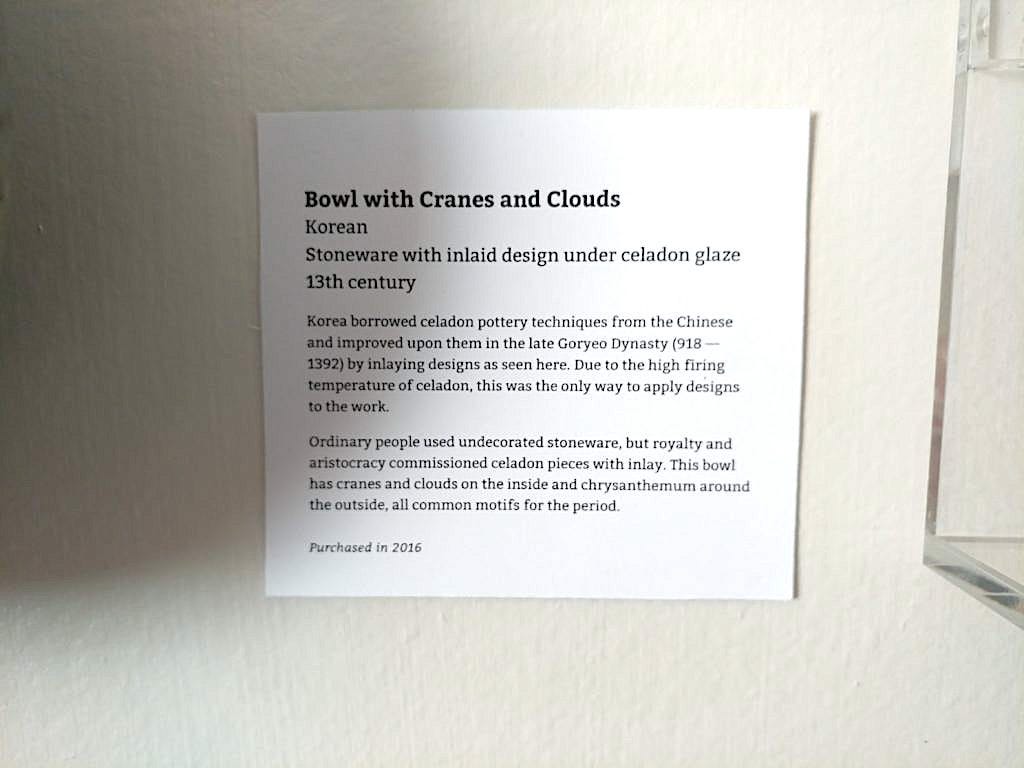All report an average cost of 70 100 per label including design and labor with a single misprint or a change of text causing this cost to skyrocket.
Ceramic size labels in a museum.
In his classic book interpreting our heritage first published in 1957 freeman tilden defines interpretation as an educational activity which aims to reveal meanings and relationships.
4 do not apply a stiff material to a flexible surface.
The national park service never uses fonts smaller than 24 points in their exhibits.
Labels within an exhibition should all be the same size unless there is need for longer explanatory text.
Tilden emphasises that while interpretation includes information it also reveals larger truths about the world just.
1 for objects made of more than one material choose the least porous surface.
In addition to being costly and time consuming for the curator to change paper museum labels labels are almost always also fixed in only one language and font size at a time.
Hang all labels at the same height and use a level to make sure they are parallel to the floor.
Separate museum storage from all other uses including office space and research and work areas.
Most museums have very specific guidelines for text labels.
Makes the label appear to be floating also using a light spray adhesive makes the labels reusable.
Metal shell glass or ceramic are better than wood or leather 2 avoid numbering over paint or pigments.
Keep in mind and ensure that labels are placed on the side of the artwork which will be approached first.
Increasingly labels in non english speaking countries have labels in english as well as the main local language and in some parts of the world labels in three or more languages are common.
Make the labels a standard size and pull off the old paper and put the new ones on.
House collections in a dedicated space that has minimal penetrations and optimum thermal performance.
They look awful and usually end up curling at the edges and jumping off the wall after an hour or so.
Tynan s label for the chawan tea bowl.
Unless your wall is as smooth as glass they are going to give you hell.
Place object labels to the right if at all possible.
How museum labels provoke reactions.
There are some basic rules for applying labels and numbers to objects.
Place labels between eye level at 150cm to a lower height of 1m and within close proximity to the artwork they reference.
Adhere small mounted labels with bluetac or similar easy to remove product.
Museum storage areas must only house museum collections.
Large sculpture may require that you place a label on the nearest wall or floor.
A museum label also referred to as caption or tombstone is a label describing an object exhibited in a museum or one introducing a room or area.
Museum storage space must be adequate to accommodate the particular.





























